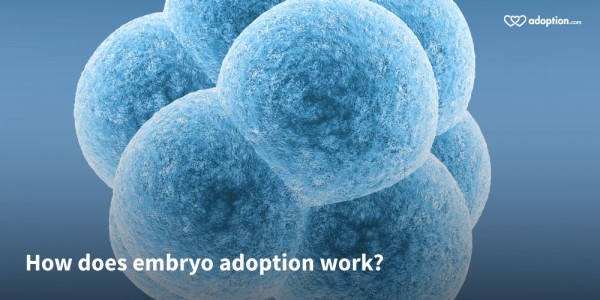Through the decades, adoption has changed from being a deep-dark-secret, closed event to encompassing many different opportunities. I knew a family, years ago when I lived in the islands, who simply conceived a child with the purpose of giving her to a childless couple. From the beginning, this child belonged to her adoptive parents. That’s part of the culture there, and it’s part of an incredibly open and unselfish birth mother’s heart. Now adoption includes older siblings who have adopted younger ones; grandparents adopting grandchildren; step-parents adopting their spouse’s children; and the latest opportunity: embryo adoption. While closed adoptions still occur, the shame and stigma that used to be attached to adoption is diminishing, and nearly gone. Although embryo adoption is fairly new, this adoption method is catching on and quickly becoming an option for many hopeful adoptive parents.
When a couple undergoes in vitro fertilization (IVF), there are often “leftover” frozen embryos. The couple, after completing their family, must decide what to do with the cryopreserved embryos. They may keep them in frozen storage indefinitely; donate them to research; have them destroyed; or place them for adoption. As in traditional adoption, the couple who is placing their child (embryo) is given a choice of hopeful adoptive parents. When the adoptive parents and genetic parents are matched, the embryo is implanted in the prepared womb of the adoptive mother. As with any woman undergoing IVF, hormones are increased and the mother’s body is medically prepared to accept the embryo before implantation.
Adoptive and genetic couples involved in embryo adoption may choose to have the adoption be open or closed. In some cases, the biological siblings even have relationships with each other, as the open adoption includes families joining together frequently.
There are several advantages to choosing embryo adoption to create a family. It is less expensive than traditional adoption; the adoptive mother is able to carry and bond with her child for the 9 months of pregnancy; embryo adoption is often less traumatic on the genetic mother than tradition adoption is for a birth mother. Those considering embryo adoption are encouraged to explore the Embryo Adoption Awareness Center online or to speak with one of their experts over the phone at 970.663.6799.

